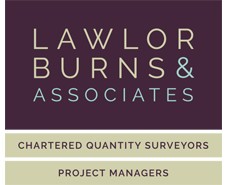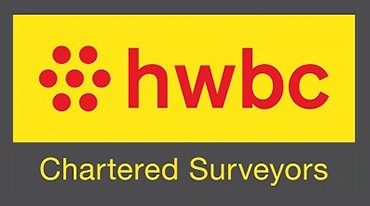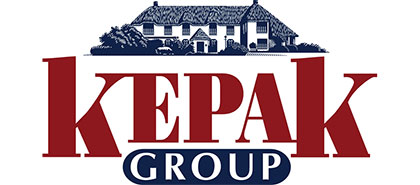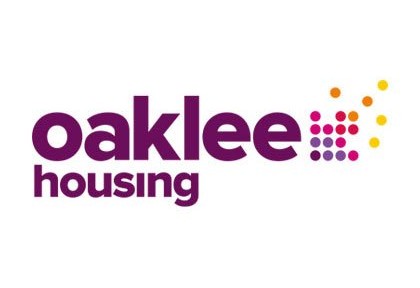RW Nowlan & Associates provides bespoke tailor made services that provide 360 property and planning solutions for extensive project types.

Planning Consultants & Property Advisors, RW Nowlan & Associates has extensive in house knowledge of Strategic Planning, Surveying and Property Asset Management. We provide clients with a wide range of planning and property advisory services working to the highest standards. We work flexibly providing a bespoke service tailored to each client’s specific needs, taking a proactive solution based approach to every project. Our services are knowledge led, drawing from our broad experience across planning and property sectors.
RW Nowlan & Associates has significant experience in providing planning consulting services at all stages of the planning and development process. Our team have a proven track record of delivering positive planning outcomes for our clients since the company’s inception. We draw upon our wide range of expertise in retail planning, mixed-use development, distressed asset advice and strategic planning to deliver clear and concise problem solving solutions.


RW Nowlan & Associates recognises the importance of land use planning to help manage development and ensure that the most appropriate land uses are in the most suitable locations. We offer a dynamic approach to land use planning that can afford significant added value to our client’s assets. In addition, our experience allows us to provide dynamic problem solving solutions to existing land use issues that may arise and affect your asset values on existing or on future development potential.
RW Nowlan & Associates has extensive management experience in project management and planning, environmental and economic management of projects throughout the Country. Such practical experience, combined with our extensive knowledge of the property industry equips the R W Nowlan & Associates team to manage a wide variety of projects successfully and effectively.


RW Nowlan & Associates is able to offer our clients a unique combination of Property & Planning skills, experience and expertise which sets us apart from our competitors within the property industry. Our valuable understanding of the full spectrum of potential risks in terms of financial, non financial, and regulatory risks allow us to guide and mitigate against any potential future risks. In addition, we provide expert advice and have a proven track record of providing high quality Property Advisory Services to our clients.
We would advise a consultation with our team to review your case and to establish if your project requires planning permission. However, if your project is classified as development, we would advise that a planning application be submitted to the Council. If unsure, you can submit a Section 5 application to your local authority to see if permission is required or not. Please see below more details on Section 5 Applications.
Full planning permission requires detailed plans and drawings of a proposed development, which may require a lot of costly design work to produce. It is possible to obtain outline planning permission without undertaking a full design of the development. Less detailed information relating to the site, layout and proposed development is submitted to the local authority (council). The local authority may then provide outline planning permission for the development i.e. they approve the layout, size and type of development. Full drawings and information must be submitted within three years or the outline planning permission lapses.
It should be noted that outline permission does not mean that the development can deviate from planning rules. To obtain full planning permission the detailed information provided within three years must still conform to planning requirements. However applying for outline permission enables a developer to find out whether the type and size of development they intend to build is likely to receive full planning permission.
We would advise a consultation with our team to review your case and to establish if your project would benefit from outline planning permission.
The fee charged by any professional such as a planning consultant involved in producing the application will depend on the complexity of the development/change of use. We would advise a consultation with our team to review your case and to provide a cost estimate for your planning application.
Assuming all information is present and correct, a planning application will generally be dealt with within 8 weeks from the date of submission of the application. However, this period can vary due to Further Information Requests from the Council. We would advise a consultation with our team to review your case and to ensure that all required information is provided first time, avoiding delays.
You may apply for an extension to planning permission if you have already undertaken substantial works and will complete them in a reasonable timeframe, or if the reason for the delay was due to considerations of a commercial, economic or technical nature.
We would advise a consultation with our team to review your case and to establish if your planning permission can be extended.
You may apply for an extension of up to five additional years. However, the Council can grant an extension of under 5 years.
Any member of the public or organisation can object to a planning application. This objection must be made in writing to the relevant Planning Authority (typically the Council) within five weeks to the day the application is lodged with the authority. The objection must include the correct address and applicant’s name, which is always included in the site or newspaper notice. It is also helpful to include the reference number. The objection must also include the objectors name and contact details.
All planning objections are available for public inspection e.g. at the public counter in the council offices, or by requesting a photocopy of objections on a particular application from the council.
Any member of the public or any organisation may comment on any planning application either negatively or positively, simply by writing to the relevant planning authority (usually the council). The objection must include the correct address and applicant’s name, which is always included in the site or newspaper notice. It is also helpful to include the reference number. You must include your own name and contact details. A fee (typically €20) is also usually required. The comments must be received by the authority within five weeks of the day the authority received the planning application.
You should review any information about objections on the planning authority’s website. Ensure you include the correct fee and all the required information. When preparing the objection remember that planning authorities can only consider planning issues, not personal grievances or dislikes. For example “I don’t like how it will look” is not a planning issue, but “it will block light to my property” is potentially a planning issue depending on the severity of the impact. You should also note that all planning objections are available for public inspection and there could be legal consequences for any false statements.
Depending on the circumstances you may wish to engage a professional such as a planning consultant to assist in producing the objection. A planning consultant can advise on what information best supports your objection and can write the objection in a clear and professional manner.
An observation/objection on a validated planning application has to be made within 5 weeks from the lodgement of the planning application.
The cost for submission of an observation/objection is €20
Whats the difference between Notification of Decision and Final Notification of Decision?
The notification of decision to grant allows for the 1 month appeal period for any objectors to the proposed development. If no Appeal has been made, the Council will issue a Final Notification to grant permission. Development can only commence once the final notification to grant permission has been issued.
If the information is deemed significant by the planning authority, the applicant will then be asked to advertise the changes to the information through a newspaper advertisement and by erecting new site notice(s).
When an application is advertised at this stage the public are given two weeks from the date the public notices are received by the planning authority to submit any submissions or observations they may have. (€20 fee is required unless the third party already made a submission on the application)
A decision will be made 4 weeks after the date that further information is received. In the case of an application including an EIS, a decision will be made 8 weeks after the receipt date.
Planning retention is a planning application that allows for an applicant to seek retrospective planning permission for an unauthorised structure or use that was not permitted planning permission or does not comply with its planning conditions.
We would advise a consultation with our team to review your case and to establish if your project requires planning permission for a change of use.
Information required varies with development type but typically includes documentation and pictures describing the site, the proposed development and any impact on the surrounding area. The level of information required varies depending on the type of development; a single story extension will require much less information than a multi-story apartment block. We would advise a consultation with our team to review your case and to advise what will be required for your planning application.
You may apply for an extension to planning permission if you have already undertaken substantial works and will complete them in a reasonable timeframe, or if the reason for the delay was due to considerations of a commercial, economic or technical nature.
We would advise a consultation with our team to review your case and to establish if your planning permission can be extended.
You must apply to the planning authority (council) before the existing planning permission expires. A fee (typically less than €100) is required. You may request an extension of up to five additional years. You may only apply for an extension if you have already undertaken substantial works and will complete them in a reasonable timeframe, or if the reason for the delay was due to considerations of a commercial, economic or technical nature.
Most planning authorities (councils) have a downloadable form for an application for extension of planning permission. If you require assistance with your extension of planning permission application we would advise a consultation with our team to review your case and to assist you in getting more time for your development. Their are certain circumstance whereby planning permissions cannot be extended. For instance if the land use zoning or development principles for the lands have changed under Statutory Plans, permission maybe an issue to ascertain. We would advise you to make contact with our team to discuss your case and to see if your permission meets the criteria for an extension of time.
Any member of the public or organisation may comment on any planning application either negatively or positively. Depending on the circumstances you may wish to engage a professional such as a planning consultant to assist in producing the objection. A planning consultant can advise on what information best supports your objection and can write the objection in a clear and professional manner.
Usually a fee must be paid to the planning authority (council). Fees can vary but are typically €20. The fee charged by any professional such as a planning consultant involved in producing the objection will depend on the complexity of the development and objection. We would advise a consultation with our team to review your case and to provide a cost estimate for your planning objection.
The Planning Department should determine your application within eight weeks. However, this 8 weeks does not take account of Requests for Further Information.
At decision stage the Planning Authority can request Further Information, which may also include a request for revised plans, from the applicant if it is unable to make a decision based on the information provided or if some aspect of the application is unclear.
If further information is requested the applicant must submit this further information within 6 months from the date of the request.
The planning authority must make its decision within 4 weeks of the date of receipt of a full response to this request for further information.
The applicant has 6 months to respond to this request for further information.
All planning decisions can be appealed to An Bord Pleanala. The appeal will include a written submission and may also include oral hearings.
All planning decisions can be appealed to An Bord Pleanala. When the appeal is made by someone other than the applicant this is a third party appeal. The appeal will include a written submission and may also include oral hearings. The written submission must include the third party’s name and address, the details of the appeal, supporting material and the correct fee. All appeals or “leave to appeal” applications must be made within four weeks of the planning decision.
In planning terms the first party is the person or organisation applying for planning permission. A third party is anyone else who has an interest in the development. In general, in order to be considered a “third party” you must have submitted a comment or objection to the authority within five weeks of the date the authority received the original planning application. Anyone who submitted a comment or objection will have received a written acknowledgement from the planning authority. However, there are some exceptions to this. The criteria for a “third party” are listed below:
• Any person, body or interested group who made submissions or observations in writing to the planning authority in relation to the planning application in accordance with permission regulations (i.e. those who wrote to the authority within five weeks of the application being submitted). These people or organisations will have received a written acknowledgement from the planning authority of their original comments or objections. These people or organisations may submit a third party appeal to An Bord Pleanala within four weeks of the planning decision, and must include a copy of the written acknowledgement of their comments.
• A prescribed body that was entitled to be notified of a planning application but was not notified in accordance with the law. This type of body must apply to An Bord Pleanala for leave to appeal within four weeks of the decision, and if granted permission will have a further two weeks to produce the appeal.
• A body whose aims or objectives relate to the promotion of environmental protection and who meet certain other requirements may be considered a third party where an Environmental Impact Statement (EIS) was required. This type of body must apply to An Bord Pleanala for leave to appeal within four weeks of the decision, and if granted permission will have a further two weeks to produce the appeal.
• A person with an interest in land adjoining the application site. Such a person must apply to An Bord Pleanala for leave to appeal within four weeks of the decision and if granted permission will have a further two weeks to produce the appeal.
Generally, An Bord Pleanala is required to make the decision within 18 weeks. However, this may be delayed, for example where oral hearings are required. If there is a delay An Bord Pleanala should inform the parties of the delay and the reasons for it.
Yes. Except where a person is granted leave to appeal by the Board, an appeal must be received by the Board within four weeks beginning on the date of the making of the decision by the planning authority (N.B. not the date on which the decision is sent or received). The day the decision is made is counted as the first day.
Your own name and address – both of which must be clearly stated. Where an agent makes the appeal on your behalf, he/she must state clearly his/her own name and address and your name and address.
The subject matter of the appeal - you must give sufficient details to enable the Board to readily identify the application the subject of the appeal (e.g. a copy of the planning authority decision, or details of the nature and the site of the proposed development, or the name of the planning authority and the planning register reference number of the decision you are appealing).
The grounds of appeal and supporting material and arguments. The Board cannot take into consideration any grounds of appeal or information submitted after the appeal (except information specifically requested by the Board) and it cannot consider non-planning issues; grounds of appeal should not, therefore, include such issues. (See question 26).
The correct fee. Details of fees are available from the Board or your local planning authority.
In the case of a third party appeal a written acknowledgement (or copy thereof) by the planning authority of the receipt of submissions or observations made by the person (third party) at planning application stage.
Your own name and address - which must be clearly stated.
Where an agent makes the submissions or observations on your behalf, he/she must state clearly his/her own name and address and your name and address.
The subject matter of the submissions or observations – you must give sufficient details to enable the Board to readily identify the application/appeal e.g. a copy of the planning authority decision or the appeal reference number.
The full grounds of the submissions or observations and supporting material and arguments. The Board cannot take into consideration any further unsolicited submissions after the initial submissions or observations are received (except information specifically requested by the Board) and the Board cannot consider non-planning issues.
If the planning authority refuses permission or places conditions on the permission that the applicant believes are unfair, they may appeal the decision to An Bord Pleanala. The appeal will include a written submission and may also include oral hearings. The written submission must include the applicant’s name and address, the details of the appeal, supporting material and the correct fee.
The applicant for planning permission is the “first party” so this type of appeal is a “first party appeal”. All appeals must be made within four weeks of the planning decision.
If you are the applicant (first party) or you have a written acknowledgement from the planning authority of your previous comments (third party) you can appeal the decision to An Bord Pleanala. If you do not have evidence that you previously commented on the application you must first apply to An Bord Pleanala for permission to appeal.
To appeal a planning decision to An Bord Pleanala you must write to the board and include; your name and address, the details of the appeal, supporting material, the correct fee, and for third party appeals a copy of the written acknowledgement of your original comments/objections. An Bord Pleanala has produced a “Planning Appeal Check List” which may be downloaded from www.pleanala.ie; this should also be available from your local authority.
If you are applying for leave to appeal you must include; your name and address, the correct fee, the grounds on which you are basing your leave to appeal (i.e. why you are appealing) and a description of your interest in the land (i.e. why you should be considered a third party). A high proportion of applications for leave to appeal fail because they do not meet the requirements.
There are very strict rules about time limits, fees and validity of appeals and the decision of An Bord Pleanala is final.
Appeals must be made within four weeks of the planning decision. This means they must be received by An Bord Pleanala within four weeks of the date the decision was made. The day of the decision counts as the first day of the four weeks. When you find out about the decision and when you put the appeal in the post is irrelevant. An Bord Pleanala must receive it within four weeks of the decision or it is invalid.
Fees payable to An Bord Pleanala range from €110 to €9,000 depending on the type of development and the type of appeal.
The fee charged by any professional such as a planning consultant involved in producing the appeal will depend on the complexity of the development. We would advise a consultation with our team to review your case and to provide a cost estimate for your planning appeal.
Every appeal must be made in writing and must be sent by post to:
The Secretary, An Bord Pleanála, 64 Marlborough Street, Dublin 1
Where an appeal has already been made, any person other than a party to the appeal can become an “observer” and make submissions or observations on the appeal. A copy of the appeal can be seen at the planning authority’s office. The time limit for such submissions or observations is (a) four weeks beginning on the day of receipt of the appeal by the Board (or the last appeal where more than one is made) or, (b) in a case where an Environmental Impact Statement has been requested and received by the Board, four weeks beginning on the date of publication of notice of same or, (c) where the Board requested the applicant to publish a further site or newspaper notice, four weeks beginning on the date of publication of same.
Yes. An appeal can be withdrawn by an applicant and the planning application can be withdrawn by the applicant at any time prior to the determination of the case by the Board. Where an appeal is withdrawn (or all the appeals where there is more than one), the original decision of the planning authority takes effect. Where the planning application is withdrawn by the applicant, no permission can be granted by the planning authority in relation to the application.
Exempt development is very low impact development that can be done for certain residential, commercial and industrial properties. Providing your building project meets specific development standards, approval from your Council is not needed.
We would advise a consultation with our team to review your case to establish if your project requires planning permission as every case differs.
A Section 5 Application is to be made along with the prescribed fee to the Council; setting out the proposed development/use you are proposing and stating does it require planning permission.
To establish if a planning application, retention application or planning compliance is required. Also, it can be used to establish if the development/scheme are in compliance with permitted planning.
We would advise a consultation with our team to review your case and to establish if your project requires planning permission.
Under Section 5 of the Planning and Development Act 2000-2002 any person, on payment of the prescribed fee ( 80 Euros), may request in writing from the planning authority a declaration as to what in any particular case is or is not exempted development within the meaning of the Act. The person shall provide to the planning authority any information necessary to enable the authority to make a decision on the matter.
A Section 5 Application can establish if planning is required or that a development/ use is in compliance with the permitted planning. The Council will conform within 4 weeks of submission of the application if they consider that your development is considered exempt development or it is not considered exempt development and will require planning permission.
€80 per application is charged by the Planning Authority (Council) for a Section 5 Application. The fee charged by any professional such as a planning consultant involved in producing the application will depend on the complexity of the development. We would advise a consultation with our team to review your case and to provide a cost estimate for your section 5 application.
If a planning authority (e.g. a county council) suspects that unauthorised development (building work) has been or is being carried out, they will issue a warning letter to the owner or person carrying out the development.
If you have received a warning letter you have four weeks to respond in writing. A planning consultant such as R W Nowlan can assist in producing this response and hopefully prevent the issue of an enforcement notice.
After issuing a warning letter the authority will investigate the development and if they find that unauthorised development has been or is being carried out (e.g. if a building has been built or changed without planning permission) they will issue an enforcement letter.
The Enforcement Department of each Council usually gives 4 weeks to respond to the Warning Letter. Whether you have received a warning letter or an enforcement notice you are advised to respond promptly in writing, with the assistance of your planning consultant, architect or surveyor. Depending on the development you have undertaken it may be possible to apply for retention planning permission which would allow you to keep or complete the structure.
If the Council feel that works carried out on your property constitutes development and is not considered exempt development they will require you to submit a retention planning application for the works. However, in certain cases the 7 year rule does apply ( see below)
The 7 Year Enforcement Rule applies to uses/development that has operated as an unauthorised use for over 7 years; once 7 years passes planning enforcement cannot be implemented. However, we would recommend seeking further advice as there are some exceptions to the above rule.
Yes, prior to sale, usually the legal/solicitors will review the planning file to establish that you are fully compliant with your permitted planning permission. For some types of buildings e.g. a residential house, a certificate or written statement from a suitably qualified architect or engineer stating that the building is compliant with planning conditions may be acceptable.
An enforcement letter or enforcement notice is issued by a planning authority when it finds that unauthorised development has been carried out. For example, if you were to build a house without planning permission, the local planning authority would send you an enforcement letter once they became aware of this.
If the building works are ongoing or have not yet begun, the enforcement notice will require that they stop or do not begin. If ongoing building work does not comply with previously granted planning permission, the enforcement notice will require that the work must comply with the planning permission or conditions. Where work has already been completed the enforcement notice will require that the structure be demolished, removed or altered to comply with previously granted permission. If a structure has been erected without any planning permission the enforcement notice will require that it be removed or demolished and the land returned to its original condition. However, a mention planning permission can be submitted to the Council seeking retrospective planning permission for the subject structure or use.
If you have received an enforcement letter you are advised to contact a planning consultant such as RW Nowlan.
If unauthorised building work is affecting you or your property you can apply to the Court for a planning injunction. You can apply for a planning injunction if any work has encroached on your own property, your right of way, your walls, boundaries, or your right to light. The court will assess whether the work is illegal and can order it to be halted and/or for the site to be returned to its original state. The first step should be to contact the person who is carrying out the work. If this is problematic or does not solve the problem then take pictures for your records and contact the local authority (Council). A planning consultant like RW Nowlan can assist with every stage including writing initial letters, applying for the injunction and attending court.
If someone has applied for an injunction against you, a planning consultant can advise you on whether and how you have broken the law and advise on steps you can take to rectify the situation, enabling you to avoid an expensive court battle.
Planning retention is a planning application that allows for an applicant to seek retrospective planning permission for an unauthorised structure or use that was not permitted planning permission.
No. The 7 year rule protects you from Enforcement proceedings but does not give you formal planning permission for the subject development/use if planning permission was never permitted. However, we would recommend seeking further advice as there are some exceptions to the above rule.
When granting planning permission the planning authority may impose conditions. This could be anything from a condition that the building does not exceed a certain height to a condition that the building works be carried out at specified times of the day to minimise impacts on nearby residents. Planning conditions are legal requirements and contravening a planning condition is a breach of the planning permission.
A planning consultant is an expert in the planning process who assists clients in applying for and obtaining planning permission. Planning consultants can assist in obtaining planning permission for any building, structure or outdoor space e.g. an extension, a new house, an office block, a shopping centre, a road, a wind farm, a cable or a redesign of a town centre. All of these require planning permission and all would benefit from the services of a planning consultant.
A good planning consultant can provide much more than simply writing your planning application. RW Nowlan & Associates can also assist with assessing feasibility and developing strategy for your property and assets, provide representation at meetings with councils, provide advice on distressed assets, and provide surveying services. For a full list of our services click here.
A feasibility study produced by a planning consultant provides advice on whether a site or property is a good investment or not. A planning consultant will understand the prospects for development of the site in the context of the local and national planning rules.
A planning consultant such as RW Nowlan will manage your planning process, producing the documents required, attending meetings with officials, managing any appeal etc.
A protected structure is a structure that a planning authority considers to be of special interest from an architectural, historical, archaeological, artistic, cultural, scientific, social or technical point of view. If you are the owner or occupier of a protected structure, you are legally obliged to prevent it becoming endangered, whether through damage or neglect.
A protected structure must be listed on the planning authority’s Record of Protected Structures (RPS) to qualify for protected status under the Act. This RPS is usually contained within the Appendix of the County Development Plan or Local Area Plan for the area.
If you are unsure about what works require planning permission for your particular building you can apply in writing to your planning authority for a declaration under Section 57 of the Planning and Development Act 2000 about the structure and its curtilage (or grounds attached). This declaration states what types of work can be carried out without affecting the character of the structure. A declaration cannot exempt any works which would otherwise require planning permission. A planning authority will issue this declaration within 12 weeks of receiving a request. There is no fee for this service. You can take a case to An Bord Pleanála if you disagree with the declaration.
Do planning applications involving protected structure differ from normal planning applications ?
Yes, slightly. You must apply for planning permission in the usual way if more extensive work is planned. However, you will need to include more detail, such as drawings, photographs or any other material necessary to explain how the proposed alterations would affect the character of the structure. The newspaper and site notices for the planning application must state that the structure is a protected structure. You should check with your planning authority to find out what additional information they require when applying for planning permission on a protected structure. If the planning authority has refused planning permission, You can appeal this decision to An Bord Pleanála.
Planning permission is needed for work carried out on a protected structure that would materially affect its character. This means that many types of work, which in another building would be considered exempted development, may not be exempted where the building is a protected structure. Depending on the nature of the structure and the features of interest even work such as painting the interior or replacing windows could affect its character and require planning permission.
Yes, during the Development Plan review stages, it is possible to seek the removal of the protected structure from the RPS Listing. The reason for its removal must show that the building does not merit protection. If a structure is to be deleted from the list, the same process must be followed. Details of the structure proposed for deletion must be displayed in public and any comments or objections from the public or the owner/occupier must be taken into account by the elected members of the planning authority when making their decision.
































































Copyright © 2022. Website design in Belfast by SMK Creations. All rights reserved. | Privacy Policy